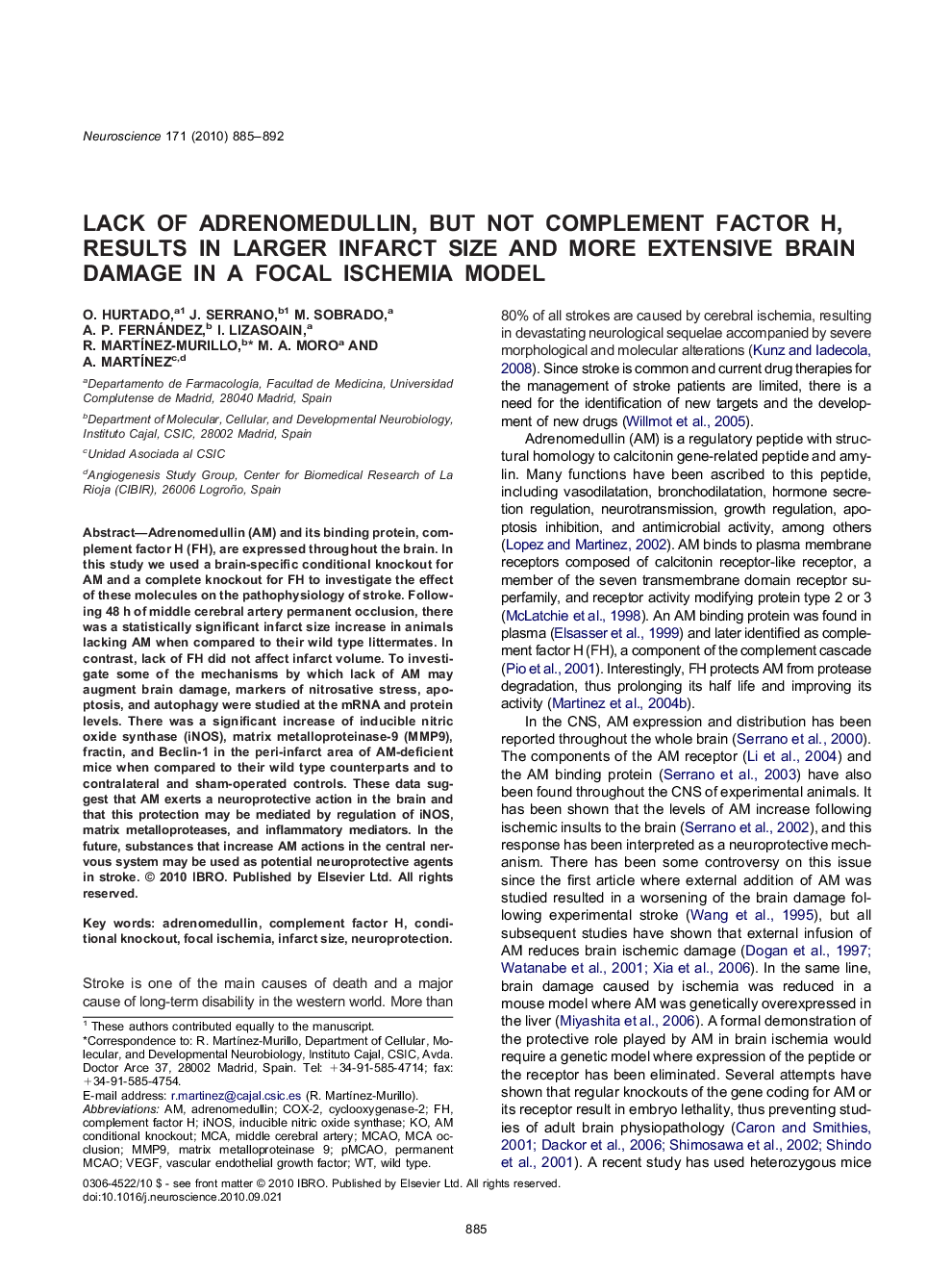| Article ID | Journal | Published Year | Pages | File Type |
|---|---|---|---|---|
| 4339257 | Neuroscience | 2010 | 8 Pages |
Adrenomedullin (AM) and its binding protein, complement factor H (FH), are expressed throughout the brain. In this study we used a brain-specific conditional knockout for AM and a complete knockout for FH to investigate the effect of these molecules on the pathophysiology of stroke. Following 48 h of middle cerebral artery permanent occlusion, there was a statistically significant infarct size increase in animals lacking AM when compared to their wild type littermates. In contrast, lack of FH did not affect infarct volume. To investigate some of the mechanisms by which lack of AM may augment brain damage, markers of nitrosative stress, apoptosis, and autophagy were studied at the mRNA and protein levels. There was a significant increase of inducible nitric oxide synthase (iNOS), matrix metalloproteinase-9 (MMP9), fractin, and Beclin-1 in the peri-infarct area of AM-deficient mice when compared to their wild type counterparts and to contralateral and sham-operated controls. These data suggest that AM exerts a neuroprotective action in the brain and that this protection may be mediated by regulation of iNOS, matrix metalloproteases, and inflammatory mediators. In the future, substances that increase AM actions in the central nervous system may be used as potential neuroprotective agents in stroke.
